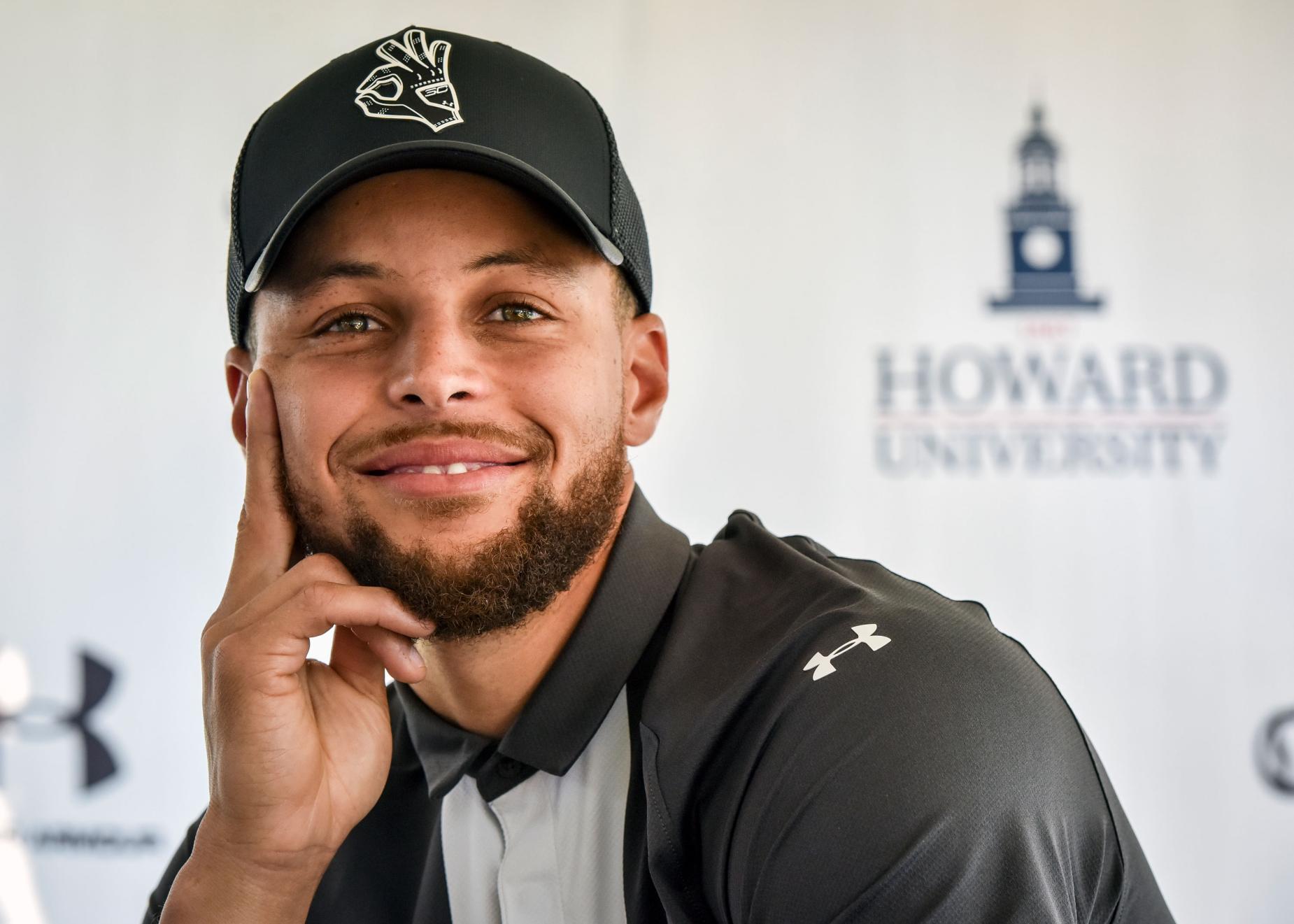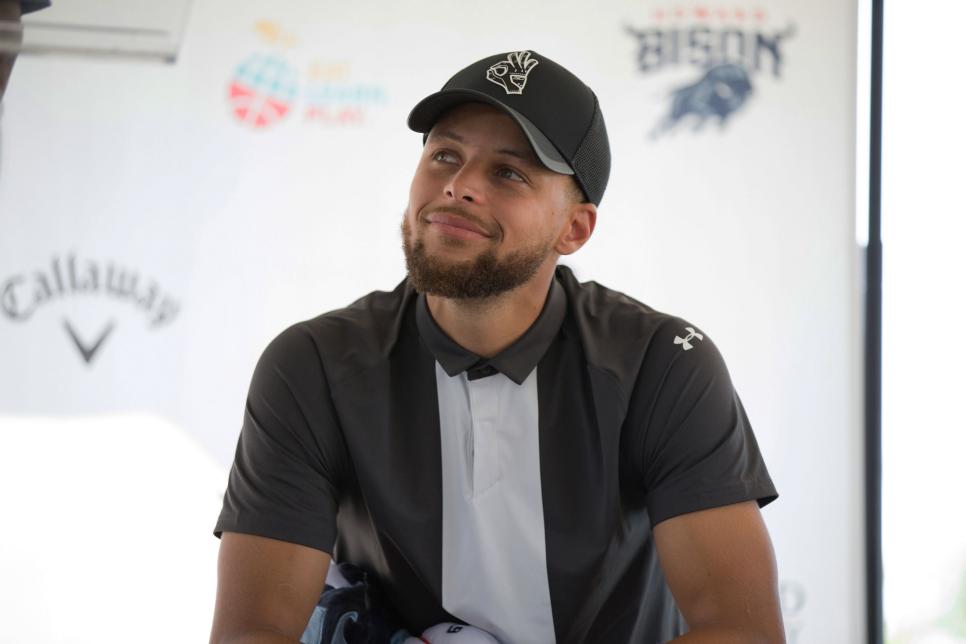Brian Stukes
By Dave Shedloski
In his first year as the head coach of the men’s and women’s golf programs at Howard University, which was also to be the school’s first in Division I, Sam Puryear didn’t get a chance to see his players compete, the fall season having been cancelled because of the ongoing pandemic.
Nevertheless, the year won’t be a total loss for his program and many others. In fact, Puryear expects it to end on a high note thanks to a golf event on the other side of the country.
Of great interest to Puryear and his players—and a lot of other college golfers—will be “Capital One’s The Match: Champions for Change,” which begins at 3 p.m. EST Friday on TNT. The entertainment value shouldn’t disappoint with a cast of Phil Mickelson, Charles Barkley, Stephen Curry and Peyton Manning competing at Stone Canyon Golf Club in Oro Valley, Ariz., outside of Tucson. The value to Historically Black Colleges and Universities, and on a larger scale to minority participation in golf, has equally promising potential.
Proceeds from this third rendition of the “The Match” franchise will predominantly benefit HBCUs, with most funds directed towards supporting golf and sports journalism programs. WarnerMedia, parent of TNT and presenter of the event, has earmarked donations to Morehouse College, Howard University, Alabama A&M, Hampton University and Winston-Salem State University. Other recipients, as selected by the players, include Grambling State, Jackson State, Lane College, Southern University and Tuskegee University.
“To know that the impetus is to help HBCUs is, to me, pretty incredible,” said Puryear, who played golf collegiately at Tennessee State University and coached at Stanford and Michigan State before taking over at Howard, located in Washington, D.C. “The [financial] support is one thing, but what I think could be more meaningful is the exposure, the chance to showcase our programs and our schools and to show how strong they are structurally and educationally, as well as athletically.”
“It’s fun for me to take the game that has given me so much and to open it up to all people and to help create opportunities to those that haven’t had the same opportunities that I have had,” Mickelson said in August at The Northern Trust. “All sports have been exclusionary over the years, and every sport is trying to be inclusive now, and that’s phenomenal. And golf is no different. We have had moments in our past that we’re probably … that we’re not proud of, and we’ve all made a real effort to create opportunities for all people.”
Curry, a three-time NBA champion with the Golden State Warriors, has had a head start on creating opportunities at Howard. Through his foundation, the golf enthusiast who has competed in a handful of Korn Ferry Tour events, recently committed an unspecified sum to support the golf program for six years as it moved from a Division II program to Division I. “Last year I had the incredible opportunity to play a small role in the rich history of Howard University through the game of golf,” Curry said in a statement. “I truly believe an investment in HBCUs is an investment in our future, and I am honored to have the opportunity to continue to support these great institutions.”

Jonathan Devich
Barkley says it’s important for minorities to learn to play golf so they can use it as a resource when they get into the working world. “It’s like a part of life skills. Listen, I’ve made so many deals on the golf course.”
Barkley, meanwhile, who has become a successful broadcaster for TNT following a Hall-of-Fame NBA career, is in the midst of a personal 10-year giving initiative that amounts to $1 million each for five HBCU schools in his native Alabama—Tuskegee, Alabama A&M, Clark Atlanta University, Miles University and Morehouse.
“I think the main thing is it’s very important because I want these kids to play golf, No. 1,” Barkley said. “If they can make it to the tour, that would be a blessing. But the main thing, when you go into the business world, you need to play golf. It’s like a part of life skills. Listen, I’ve made so many deals on the golf course. I mean, that’s amazing.”
Puryear couldn’t agree more with that assessment. But currently there are only about 30 golf programs at HBCUs. “Developing good players is a start, but attracting good players is important, too,” he said. “I think this could definitely help because right now there’s a lot of talent that is coming out of the HBCU schools, and young players need to know that their talent can be developed. A lot of times that’s just never heard about. All of a sudden, you can get some of your best minority players who go to HBCU schools.
“What I really hope, though, is that this would help spearhead the creation of new golf programs at other places while rejuvenating older golf programs.”

The Washington Post
Curry stepped up in 2019 to help fund the Howard men’s and women’s golf team for six years.
But again, the larger goal is to expose more college-age minorities to the game at a higher level, “so that they have an acclimation to what is, really, a corporate game, and help them segue into relationships and opportunities in corporate America,” Puryear said.
“I think it’s really important to the fabric of our country to grow the game at the collegiate level for minorities,” he added. “That isn’t hyperbole. I’m just speaking numbers here. These students need a place to go. And when they get to that place, in addition to a solid education, they need some of the best arenas, the training facilities and golf courses, the best coaches to compete with the majority of schools. I think what Steph and Phil and Charles and Peyton are doing is fantastic—not just while these kids are attending college, but what they might have the opportunity to do afterwards with their lives.”








